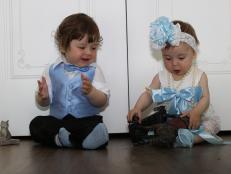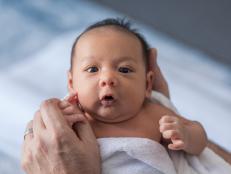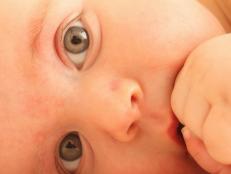Babies Understand Counting Before Researchers Previously Thought, Study Says
ABC and one, two, three—here’s what your baby really understands.


PeopleImages
If you look up your toddler’s milestones, research has previously shown that kids begin counting around age 4. However, a new study suggests babies are a lot sharper than we think.
While your infant may still be working on words like Mamma and Dadda, you shouldn’t discount their math skills, a study by Johns Hopkins University reported. Researchers believe that infants as young as 14-18 months can understand that basic counting is related to quantity. How’s that for a baby genius?
“Although they are years away from understanding the exact meanings of number words, babies are already in the business of recognizing that counting is about number,” study author Lisa Feigenson said. “Research like ours shows that babies actually have a pretty sophisticated understanding of the world—they’re already trying to make sense of what adults around them are saying, and that includes this domain of counting and numbers.”
For the study, researchers worked with 14 and 18-month-old infants. The babies watched as toy dogs or toy cars were presented and then hidden in a box that they couldn't see, but could reach, inside of. During some of the trials, researchers “counted each toy aloud as they dropped them into the box, saying, ‘Look! One, two, three, four! Four dogs!’ Other times the researchers simply dropped each toy into the box, saying, ‘This, this, this, and this—these dogs.’”
What they found was that when researchers didn’t count aloud, the babies had a hard time remembering that the box held four toys. The babies would quickly become distracted after the researchers pulled out just one toy. However, when the researcher counted the toys as they went into the box, they found the babies clearly expected more than one to be pulled. While they didn't remember the exact number, the babies could remember approximately how many toys went into the box.
Feigenson said that parents shouldn’t be surprised, especially considering the activities we give to our little ones early on in their lives.
“We buy counting books for babies and we count aloud with toddlers,” Feigenson added. “All of that raises the question: Are kids really clueless about what counting means until they’re in the preschool years?”
What’s next for these counting babies? The next study will follow-up to see if early counting practices lead to stronger numerical skills later on, and how English-speaking babies react to counting in a foreign language.
So, the next time you are singing and playing with your infant, throw in a few numbers for a little learning session.















